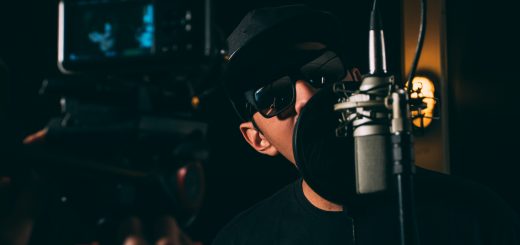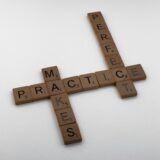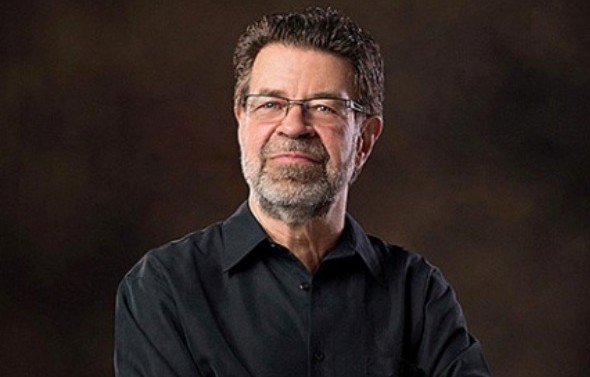Do You Need a Voiceover Coach?
Lately we have received several queries on becoming a voiceover artist. Majority of them are still neophytes but were told to have great voiceover potential. We asked them if they had any voice over training or if they are working with a voice coach or teacher. However, most of them do not have the faintest idea how to look for one and what qualities to look for in a voice coach.
So how important is a voiceover coach for a budding talent? Very much so. Working with a voice coach is very much like harnessing Jedi skills with a Yoda master to guide you.
 Even the legendary Morgan Freeman credits his voice and diction instructor when complimented by Jimmy Fallon on his signature voice.
Even the legendary Morgan Freeman credits his voice and diction instructor when complimented by Jimmy Fallon on his signature voice.
Voiceover actor and comedy writer Jackson Daniel considers himself lucky to work with renowned VO coaches in the industry such as Jodi Gottlieb, Dave Walsh, Jeff Howell, Marc Cashman and Chuck Duran.
Female voice over artist and Music Director Alexa Smith talked about joining a voice workout group and hiring a private voice coach to help her take her voiceover talent to the next level.
So, what to look for in a voiceover coach? We have done the research for you and enlisted the common qualities noted by professionals in the business (see credits at the end of the article)
Find someone you can connect with.
Your vocal coach should be someone who understands you and what you’re about. Someone who respects you and your goal and who will work on not intimidating you, instead someone who can make you feel like you and your coach are a team. Arthur Samuel Joseph mentions in his article that, “When we train with a voice teacher, a voice coach or a singing teacher, psychologically speaking, we give them who we are.” Erika Lloyd supplements this when she said in her article, “We all learn best when we trust that our teachers have our best interests at heart, and though they’re there to critique our performance in order to improve our skills, they should still be consistently encouraging and amiable.” You should not be afraid to ask your vocal teacher questions and should be able to receive feedback from them as well.
Find someone with a reputable background in voiceovers and broadcasting and education in vocal anatomy.
Your vocal teacher must have a firm grasp of significant artistic and vocal technique – for obvious reasons. They won’t be able to teach you what they don’t know themselves. Lloyd advises caution against pop coaches who can certainly help you in vocal stylization but may have no background at all in the actual physical instrument you are using. This may be dangerous because a possible consequence to this is it ‘leads to a lot of misinformed teaching that ignores vocal health and the possibility of voice loss, inflammation from overuse or misuse, or even vocal cord lesions or hemorrhaging.’ Joseph mentions something relevant in his own article when he said that your voice should never hurt during and after a lesson. He further states that, “new techniques take time to root and so, sometimes, there will be vocal irritation. Bring it to the teacher’s attention if they themselves have not noticed and see if what they offer resolves the problem.” Dot Todman describes this in her post as ‘someone who knows the physiology of the voice and helps you achieve proper technique.’
Find someone who can create or can customize the curriculum to your abilities and goals.
Just like Lloyd points out, each voice is as distinctive as a thumbprint and every student has unique interests and will have their own learning curve. Your vocal teacher should recognize your strengths and can come up with exercises that highlights those but is also mindful of those that you need to work on. In her own post, Dot says to beware of vocal coaches who ‘preaches their way is the “only way” or the “only method” that works.’ Again, your vocal coach should ideally view you as an individual with unique skills and can pattern the lesson into developing your strengths and improving on your opportunities.
Find someone goal oriented.
 Your voice coach should have goals aligned with yours and just like any mentor should be able to help you on your career priorities.
Your voice coach should have goals aligned with yours and just like any mentor should be able to help you on your career priorities.
Lloyd adds, “Think about what you value in terms of things like creating goals, planning, communication, and work ethic, and try to find out if the teacher you have in mind has your same values.” Joseph also mentioned in his article that your vocal teacher should help you identify short-term and long-term goals based on what you can do and on your own goals.
Just like in any industry that utilizes skills, voiceover artists need to find that right mentor to guide them in developing their talent and stepping up their game.
Do you have ideas and inputs on voice over coaches and teachers? Feel free to post comments below.
References:
ErIka Lloyd. 10 Qualities to Look for In a Voice Teacher. Accessed 22 Sep 2016
Arthur Samuel Joseph. The 7 Most Important Things to Look for in a Voice Teacher, Vocal Coach or Singing Teacher. Accessed 22 Sep 2016
Dot Todman. How to Find theRight Vocal Coach. Accessed 22 Sep 2016















